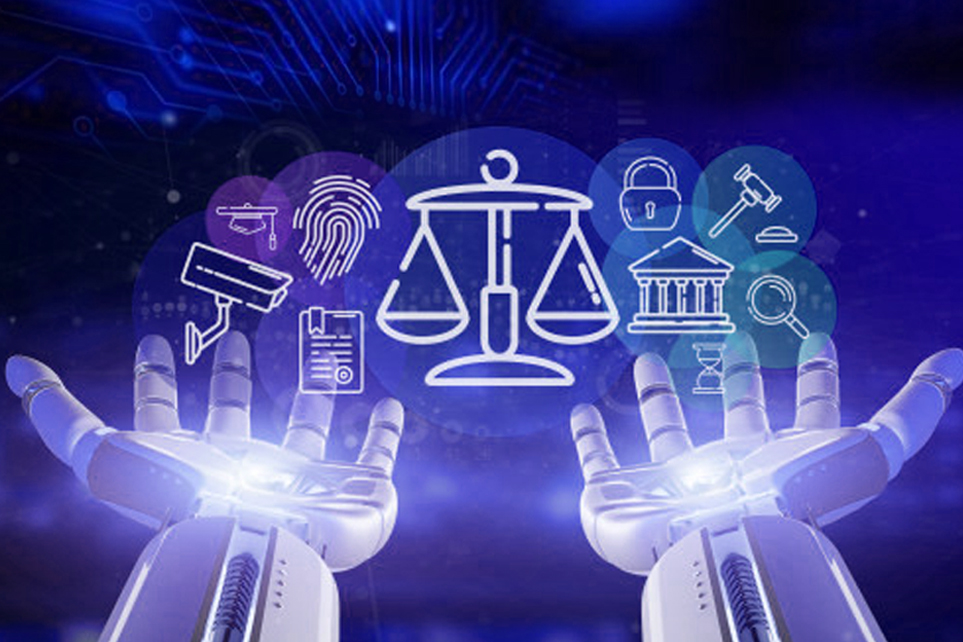At first, you might find the idea of Artificial Intelligence/Machine Learning being associated with Law very unlikely since both the fields appear to be poles apart. Well, the truth is far from it; today, AI is on the way to transforming the legal profession in various ways, helping Law firms manage their operations as well as augmenting and reducing many of the tasks that were previously relied upon humans to do, saving precious time and manpower that can be otherwise used for more productive tasks.
These technological innovations will enable the legal firms and departments that implement and leverage them to offer better legal services and representation for their clients. Let us take a look at the some of the key areas where AI is making a positive impact on the legal industry.
Documents Review
A great part of any legal proceeding is the amount of documentation that needs to be skimmed through to find the relevant material, which requires a team of paralegals and hours and hours of precious time. Firms have adopted AI software that helps to analyse documents and flag the ones that are deemed as relevant.
Legal Research
Once the relevant documents are shortlisted and flagged, machine learning comes into work and uses the learned algorithm to find similar documents that can be of use, out of the millions of papers, proceedings, and dissents. This ensures that all the legal research is done very efficiently and in a comprehensive way, covering a whole lot more data. Natural language processing or NLP is also applied to further analyse the documents to aid the research.
Due Diligence
This is hectic work, where legal professionals are required to perform exhaustive background checks and go to lengths to uncover information regarding their clients or on their behalf. These facts and data are then evaluated for better decision making and are used to support their cases and giving sound counsel to the clients. This tedious work is fast being replaced by artificially intelligent systems, which help perform most of the due diligence more efficiently and accurately.
Contract Management
Often, clients come for legal counselling to review contracts and to check and identify if any issue or risk is associated with that contract. Sometimes, contracts can be misleading and have a negative impact, and legal professionals assist their clients to avoid just that. AI can be used and is being used, to analyse such contracts in bulk and made to learn to identify such situations quickly with fewer human errors, avoiding any mishap.
Predicting Outcomes
Since computers and artificially intelligent systems have access to huge amounts of trial data and years of documentation, pattern recognition, machine learning comes into play in the analysis of all that. These insights are then used to predict outcomes for similar cases as well as finding answers that could have otherwise taken days to arrive.
Tracking Client Acquisition
Machine learning, when combined with marketing data, makes it easier to understand the acquisition and retention of clients, including what ad campaigns were most popular and how clients choose one firm over the others because the data would provide a better understanding of which firm performs the best, and which lawyers have the most successful cases.
Increasing Productivity
As much legal work is monotonous, AI can improve productivity by automating tedious tasks that don’t require the expertise of a real person. AI enhances the accuracy and efficiency of legal procedures by automating a variety of menial tasks that waste time and resources.
Customer Satisfaction
AI-powered chatbots can provide better customer service. Chatbots are robots that imitate human conversations based on a collective of information about a brand or company. The purpose of these bots is to improve a website’s usefulness by making it possible for clients to have 24/7 access to resources and answers to their questions, all while eliminating long response times from the customer service reps.
Conclusion
Practicing law firms that have previously shied away from giving a warm welcome to technological solutions are now springing at the opportunity of making commitment toward AI powered business infrastructure.
Automation of legal jobs is no longer a distant reality for legal industry which is why firms are keen to adopt internal AI configuration models. It is true that the legal industry is swiftly changing and that AI sits at the very centre of this monumental transformation.
At AppleTech we have the experience and the expertise of building custom AI based solutions for all industries including legal. Contact us today to see your concept turn into a solution.

